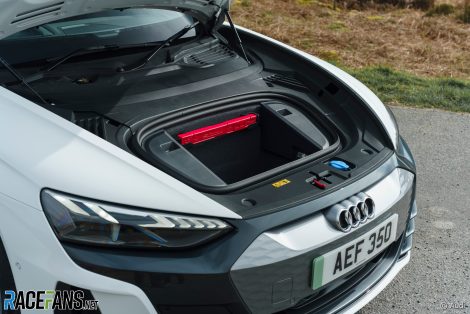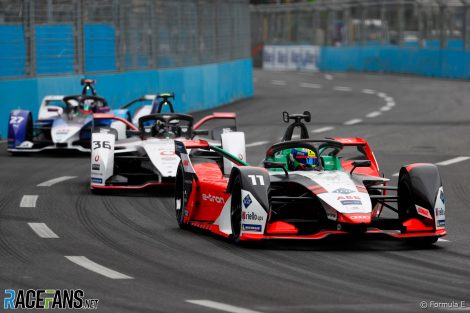Audi has finally confirmed its long-rumoured plans to enter Formula 1 when the series introduces its new power unit regulations in 2026.
That year has already been marked as a significant one by the German car manufacturer. Last year it was widely reported Audi will stop launching new combustion-engined vehicles in 2026.
From 2033, Audi will only sell electric-engined cars. But if the company’s future is electric, that seems not to be reflected in its motorsport priorities.
Audi pulled out of the all-electric single seater series Formula E last year. Now it has announced it will develop a new hybrid engine for its F1 entry in 2026. As things stand, Audi’s first Formula 1 power unit could conceivably be the last new combustion engine it designs.
Developing a Formula 1 engine involves colossal sums. Audi wouldn’t be drawn even on a ballpark figure when it announced its plans today, but chairman Markus Duesmann said admitted “pretty high numbers” were involved and a “long-term investment.”
So why is Audi spending presumably vast amounts on developing and promoting a type of engine its road car operation is abandoning? Two parts of F1’s new power unit rules proved attractive.
The 2026 hybrids will produce almost as much energy from their electric systems (350kW) as the internal combustion engines (400kW). And the latter will be powered by sustainable fuels – also known as ‘e-fuels’.
“Luckily the decision is to make the electric share in the power trains much bigger and to run the combustion engines with e-fuels from sustainable sources,” said Duesmann. He is convinced e-fuels will play a vital role in reducing the carbon emitted by existing vehicles.
“E-fuels will play a role in the world because the two billion cars that are on the roads, if we’re going to put them carbon-neutral, e-fuel is the solution,” he said. “What about planes, et cetera?
Advert | Become a RaceFans supporter and
“Formula 1, by the decision to go to e-fuels, would push the e-fuel development a lot.”
This is part of a wider push by the sport to reduce its emissions. “Also Formula 1 has decided to become carbon neutral by 2030. And that was the boundary condition for us to be able to decide.”

Audi will enter F1 at somewhat of a disadvantage as its rival manufacturers have long experience with the 1.6-litre V6 combustion engines which will…
Click Here to Read the Full Original Article at RaceFans…

